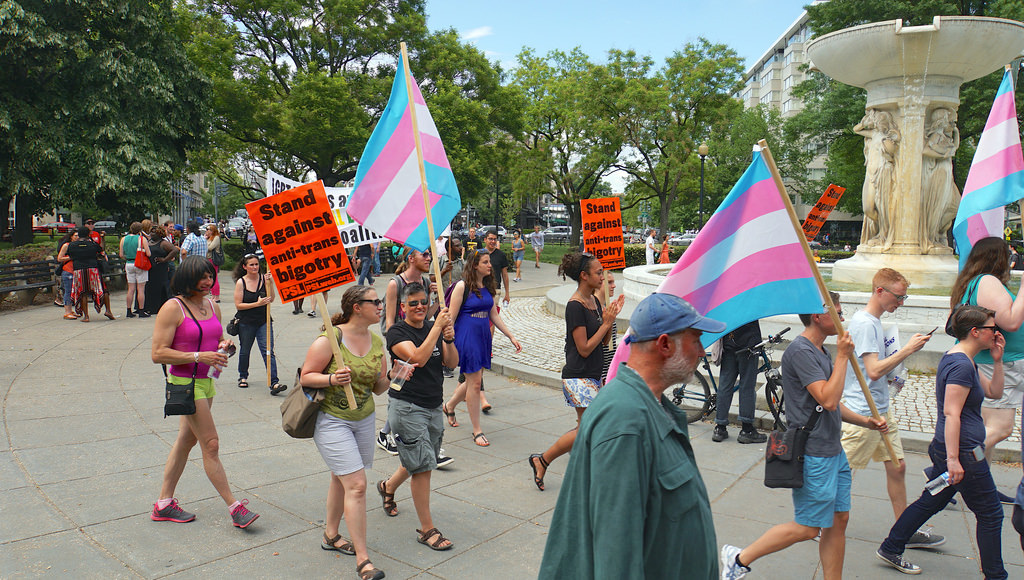Good news!
But is it good enough?
The private member's Bill that Randall Garrison has spent eight years fighting for in Parliament included both "gender identity" and "gender expression" to the Canadian Human Rights Act. Does it make a difference if "gender expression" or "gender presentation" is not included?
The short answer is that no one knows for sure, since there are no cases which have considered the question (which of course is the only way lawyers know anything...if a judge has decided it!)
The long answer is ...probably it makes no difference.
The first thing to remember is that trans people are ALREADY protected from discrimination in ALL human rights laws in the country on the ground of "sex". The law does not make a distinction between "sex" and "gender". So from a legal point of view, trans people already have all the protection against discrimination that they need.
Having said that, all of the cases so far have concerned trans people who identify with either M or F. There aren't so far any cases dealing with non-binary trans people, ie people for whom neither M nor F will ever adequately describe their gender.
So...does this mean the result might be different for non-binary people?
No...because the law says now that one's sex/gender for legal purposes is dependent on one's gender identity. So anyone who identifies as trans, whether binary or non binary, is protected from discrimination.
So far so good. A trans person is protected from discrimination whether the language in the human rights law prohibits discrimination on the basis of sex, or prohibits discrimination on the basis of gender identity, or both.
Does adding the phrase "gender expression" or "gender presentation" make a difference?
The Ontario Human Rights Commission has a policy document that says:
Gender identity is each person’s internal and individual experience of gender. It is their sense of being a woman, a man, both, neither, or anywhere along the gender spectrum. A person’s gender identity may be the same as or different from their birth-assigned sex. Gender identity is fundamentally different from a person’s sexual orientation.
Gender expression is how a person publicly presents their gender. This can include behaviour and outward appearance such as dress, hair, make-up, body language and voice. A person’s chosen name and pronoun are also common ways of expressing gender.
What about a man who identifies as male, but wants to wear lipstick to work? Could an employer tell him he cannot come to work wearing lipstick, because he is a man and men don't wear lipstick?
Since the person who is doing the discriminating against trans people probably does so on the basis that the person doesn't look, gender-wise, like what the discriminator expects, it seems likely that the way one expresses one's gender is part of, or protected by, the term 'gender identity'.
Follow the example of the cisgender man who wears lipstick. Suppose that another person (say, the identical twin of the cisgender man) identifies as nonbinary and gender fluid. That person, too, wears lipstick to work but would otherwise be read as male.
The employer tells both people that they can't wear lipstick to work. The nonbinary genderfluid person says that it is part of their gender identity to wear accessories customarily associated with female people. So they would win a human rights case if their employer fired them for wearing lipstick.
The cisgender man does not claim that wearing lipstick to work is part of his gender identity as male; but he says it is part of his gender presentation. Would the employer be entitled to fire him for wearing lipstick because lipstick is not part of a male gender identity?
I think human rights tribunals would decide, in both cases, that the employer had no right to fire the person who wore lipstick to work. And I think that is true whether the statute contained protections on the basis of sex, on the basis of gender identity, on the basis of gender presentation, or some combination.
So does that mean it doesn't matter whether gender identity is added to human rights legislation? Not at all.
Though 'sex' protects trans people, hardly anyone knows that. Not trans people, not their employers or their lawyers or their service providers. It is essential that protection for trans people be explicit, not implicit. Unless people know they have rights, the rights they have are empty.
So we applaud the federal government for adding 'gender identity' to the Canadian Human Rights Act.
As with all legislation passed by the new government in the House of Commons, the legislation must also get the approval of the Senate. It is an open question whether the change will survive Senate scrutiny since so many Senators are Conservative appointees.
But remember: whether they pass a law to add 'gender identity', or whether the law fails again, trans people are NOW protected from discrimination.

 RSS Feed
RSS Feed
